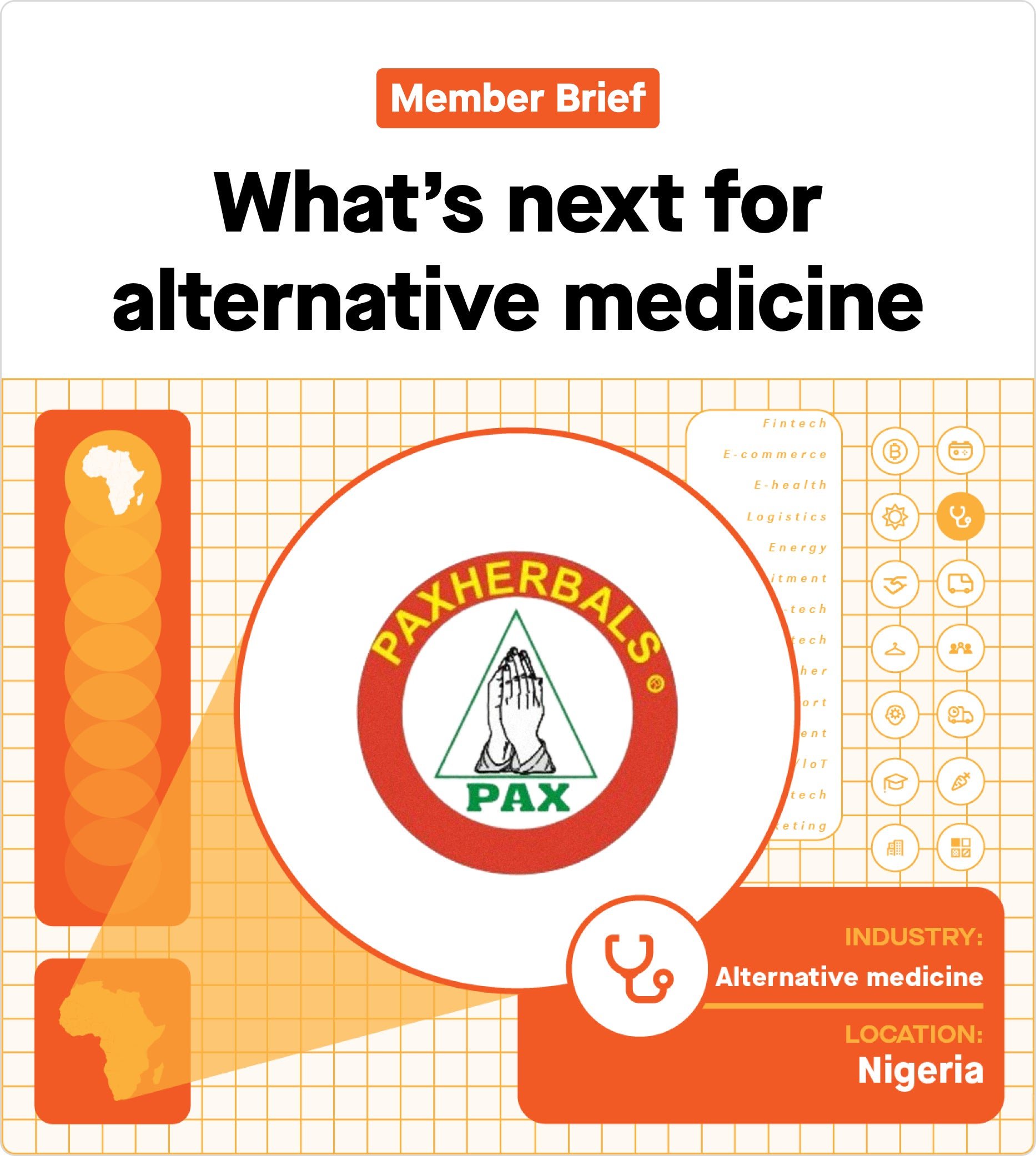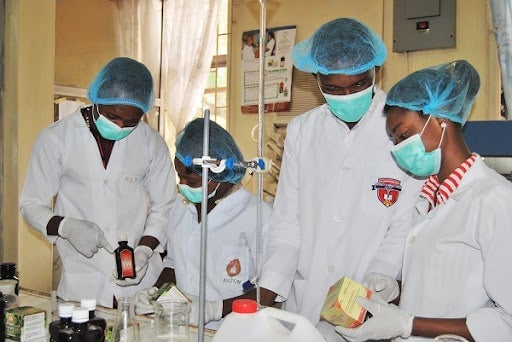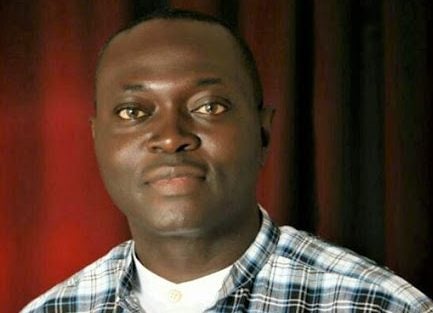✦ What’s next for alternative medicine
Hi Quartz Africa members,



Hi Quartz Africa members,
Africa is home to living organisms that comprise about a quarter of global biodiversity (pdf), and a majority of the continent’s population depends at least partially on traditional or alternative medicine. Today, individuals and companies are engaged in R&D to produce branded herbal products from well-known indigenous medicinal plants—a research process known as bioprospecting.
African governments and private companies started dabbling in bioprospecting in the 1980s. During this period, a Cameroon-based pharmaceutical lab developed and secured local authorization for Hepasor, which uses traditional medicine to treat hepatitis. In 1996, Nigeria’s Pax Herbal was founded with the launch of an herbal cough syrup. And in 2006, an herbal treatment for sickle cell disease called Niprisan was developed and taken to market by the National Institute for Pharmaceutical Research and Development. Today, an improved formulation of Niprisan is now being produced by US-based pharma company Xickle.
Beyond these bright spots, investment in Africa’s alternative-medicine space has remained relatively low, due in part to stigmatization by a pharma industry that’s based largely on western medicine. The resulting lack of government policy or regulation has kept alternative medicine operating largely in the informal sector. At least until now.
“Natural remedies are burgeoning in popularity in western countries and have a long history in China, India, and other places,” Dr. Matshidiso Moeti, the World Health Organization’s regional director for Africa, said in a speech last year. “Major pharmaceutical companies are also looking to Africa for new active ingredients. With the right partnerships and investments, tried-and-tested African traditional medicines could find a broad global market.”
The cheat sheet
💡 The opportunity: New policies are creating more avenues for businesses to take advantage of bioprospecting. The majority of African countries now have traditional-medicine policies, and traditional-medicine products are being added to national essential medicines lists. Ghana, Mali, and South Africa have also established partial health insurance coverage for traditional-medicine products.
🤔 The challenge: The clinical trials required to verify claims of effectiveness for medicinal products can take years, cost a ton of money, and prove difficult to carry out in African countries that lack sufficient infrastructure. Thus many herbal medicinal products never go through trials, and are marketed as mere supplements.
🌍 The road map: There are few large-scale companies in the industry, which is dominated by small businesses in the informal sector. Innovative entrepreneurs are needed to champion business models that will attract funding to the alternative medicine.
💰 The stakeholders: Other than self-funding small- and medium-scale businesses, there are a few bigger players in the space. US-based Enygma Ventures, South African liquor company Distell, and venture capital firm Invenfin (an arm of Remgro) have made investments in the sector.
70-80%: Share of Africa’s population that depends at least partially on traditional or alternative medicine
54%: Share of South Africa’s population (27 million people) that uses traditional medicine
$100 billion: Estimated value of the global complementary and alternative medicine market” in 2021
R2.9 billion ($198 million): Estimated annual value of the traditional medicine market in South Africa
The case study
Name: Pax Herbal Clinic and Research Laboratories (aka Paxherbals)
Pax Herbal focuses on the scientific cultivation, identification, promotion, and development of African herbal medicine. Aiming to collect every plant species in Nigeria, the company has collected and analyzed over 5,000 plants thus far, from which it produces more than 50 herbal products approved by Nigerian drug regulator Nafdac (the highest number approved for a company in Nigeria). Paxherbals has a nationwide network of over 1,000 authorized distributor centers.

Paxherbals, which combines indigenous knowledge with scientific research and modern production methods, boasts multiple laboratories, a production plant, a herbarium, and farms for growing medicinal plants. It established the first-ever herbal medicine hospital and pharmacovigilance centers in two locations in Lagos in 2011, and has since expanded to five hospitals in four cities.
In 2012, Paxherbals was described by the Geneva-based Trans4m Center for Integral Development as “one of the biggest, best organized and best equipped phyto-pharmaceutical manufacturers and research labs in Africa.”
Paxherbals also works with its host community to source and manufacture raw materials and machinery: The machinery it uses for teabag production, for example, was built by local artisans. It likewise collaborates with science, healthcare, research, and education institutions in Nigeria and abroad, which makes the startup a good prospective partner for a pharmaceutical company interested in bioprospecting in Nigeria.
In conversation with

Rev. Anselm Adodo is a Benedictine monk, ethnobotanist, and medical sociologist who founded Paxherbals near a monastery in Edo state. As director, he heads up the company, while Joseph Okogun, a professor of phytochemistry and organic chemistry, is chief of research and development. Here are some choice quotes from our conversation with Adodo:
🤔 On whether self-funded Paxherbal is open to investment:
⚕️ On the potential for collaboration:
📈 On Africa’s alt-medicine opportunities:
Alternative medicine deals to 👀
African liquor group Distell and Invenfin, an early-stage venture capital fund, each purchased a 20% stake in Rethink, the cannabis wellness brand of Releaf Pharmaceuticals, in January 2021.
In February 2022, Russian billionaire Mikhail Fridman was reported to be in the process of acquiring the European subsidiaries of South African healthcare products manufacturer Ascendis Health, including Sun Wave Pharma, an alternative medicine products distributor. Ascendis Health acquired the Romanian company for 16.35 million euro ($18.4 million) in 2017.
Feelgood Health, a South African health and wellness company, secured R4 million (US$280,000) in seed investment from venture capital firm Enygma Ventures in July 2020, after 20 years of growth without external funding.
🎵 This brief was produced while listening to “Itendo” (Edo Proverbs) by Fabomo (Nigeria)
Have a highly motivated rest of your week,
— Uwagbale Edward-Ekpu, Quartz Africa contributor in Abuja
One 🌿 thing
While Europe held the largest share of the global complementary and alternative medicine market in 2020, at 33.4%, the Middle East and Africa region is expected to expand by 24.8% by 2028.